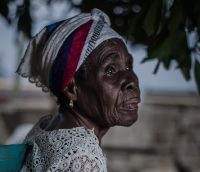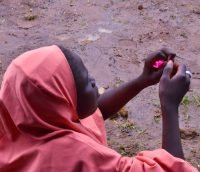
By Olayinka Precious
Growing up in Kano, Aisha always knew the world was not fair. She watched her mother, a skilled tailor, sew intricate designs late into the night, only to earn barely enough to feed the family. Yet men with half her talent made more money.
“Mama, why do they pay you so little?” Aisha would ask, watching her mother’s tired hands stitch fabric.
Her mother would smile sadly. “That is how the world is, my daughter. Women work hard, but the world sees men first.”
Aisha was never one to accept things as they were. When she heard about a new skills training program for young women in her community, her heart leapt.
“Mama, please let me join,” she pleaded. “I promise I will use everything I learn to help us.”
It was not an easy decision. The whispers in the neighborhood were loud.
“Girls who learn too much forget their place,” some relatives warned.
But Aisha’s mother saw the fire in her daughter’s eyes. “Go, my child,” she said softly. “Prove them wrong.”
***
Meanwhile, hundreds of kilometers away in Lagos, Emeka swept the floors of a small store, dreaming of a better life. He worked odd jobs to save for his education, but it always felt like the system was against him.
“If you do not know someone, you cannot go far in this country,” his friend Nnamdi often said.
Emeka refused to believe that. One day, he met Mr. Adeyemi, a business owner who hired people based on merit, not connections.
“You have got a good head on your shoulders, Emeka,” Mr. Adeyemi said. “Work hard, and you will go far.”
Those words changed everything. Emeka finally saw that fairness could open doors, not just luck.
***
Back in Kano, Aisha’s training opened her mind to new possibilities. She learned business skills, financial literacy, and digital marketing. Her favorite part was designing business plans. Slowly, an idea began to form her clothing line, inspired by Nigeria’s vibrant cultures.
But not everyone believed in her dream.
“A woman’s place is in her husband’s house, not in a market stall,” an uncle scoffed.
Aisha bit her tongue but kept working. When she finally applied for a small business grant, her hands trembled as she submitted her proposal.
Weeks later, she received the call.
“Congratulations, Aisha! Your business plan has been selected for funding.”
Tears filled her eyes. The money became the foundation of her small tailoring business. She hired women like her mother, women who had been overlooked for years.
***
Emeka’s journey was not without challenges either. When he suggested fairer hiring practices at his company, some senior colleagues laughed.
“This is Nigeria,” they sneered. “Things will never change.”
But Emeka stood firm. Over time, his persistence paid off. His ideas caught the attention of lawmakers, sparking a small but powerful movement for fair employment policies. More young people like him began finding jobs based on skill, not privilege.
***
Years later, Emeka and Aisha’s paths crossed at a national youth empowerment conference. Aisha was a guest speaker, sharing how her business now employs dozens of women and funds training programs for girls. Emeka was there as an advocate, pushing for merit-based opportunities for all.
After her speech, Emeka approached her.
“Your story is inspiring, Aisha. It is people like you who are changing Nigeria.”
Aisha smiled warmly. “And it is people like you who are making sure the system works for everyone.”
Their stories, though different, were bound by the same truth: reducing inequality changes lives. When girls are empowered, families rise. When young people are given fair chances, communities thrive. And when justice replaces corruption, a nation moves forward.
Nigeria still had a long way to go, but every time someone like Aisha or Emeka stood up, the country took another step forward.
Inequality may be deeply rooted, but so is the spirit of resilience. And when we rise together, there is no limit to how far we can go.





